#Henri Meilhac
Explore tagged Tumblr posts
Text

Ci sono momenti nella vita in cui non ci si può impedire di fare qualche sciocchezza. Lo chiamano entusiasmo!
7 notes
·
View notes
Video
Germaine Dermoz by Truus, Bob & Jan too! Via Flickr: French postcard. Edition Pathé Frères. Photo Félix. Germaine Dermoz (1888–1966), younger sister of actress Jeanne Delvair, was a French film and theatre actress of the early-to-mid twentieth century. She is most famous for her portrayal of Madame Beudet in Germaine Dulac's avant-garde film The Smiling Madame Beudet (1923). Germaine Dermoz was born as Germaine Deluermoz on July 30, 1888 in Paris. She acted on stage with Réjane (she stayed with Réjane’s troupe between 1907 and 1909) and Firmin Gémier and her many theatrical tours led her, before the First World War, as far as Argentine and Russia. She recounts in her memoirs the perilous conditions in which one day she and her comrades had to cross the Cordillera of the Andes on the back of a donkey, on the side of a mountain on narrow paths, resigning themselves to throwing a part of their costumes on the snowy slopes. In St. Petersburg, she played before Tsar Nicholas II and suffered the first shots of the October 1917 revolution. Contrary to some assertions, she never belonged to the Comédie-Française. Already from 1908 Dermoz acted in the Gaumont film Méprise (Maurice de Féraudy, 1908), followed by a few more shorts by De Féraudy, but soon she would also play in films by Pathè, Éclair and Eclipse as well. She was especially active in the historical genre, such as Dragonnades sous Louis XIV (1909), Beethoven (1909), Eugénie Grandet (1910), Le roi Philippe le Bel et les templiers (1910), all by Victorin-Hippolyte Jasset for Éclair, but also La mort du duc d'Enghien en 1804 (Albert Capellani, 1909), La fin d'un tyran (Georges Le Faure, 1909), La duchesse de Langeais (André Calmettes, 1910), for Pathé, and L'assassinat d'Henri III (Henri Desfontaines, Louis Mercanton, 1911) , Olivier Cromwell (Desfontaines, 1911), and Milton (Desfontaines, 1911) for Eclipse. After the Éclair film Le mystère de Notre-Dame de Paris (Emile Chautard, Victorin-Hippolyte Jasset, 1912), Dermoz mostly acted in Pathé productions, of which several were directed by Adrien Caillard, such as Les trois sultanes (1912), Zaza (1913), adaptation of the play by Berton and Simon, and L'héritage de Cabestan (1913). At Pathé Dermoz was often acting together with Henri Étievant and Jeanne Grumbach, as in L’absent (A Dutch Love Story, Albert Capellani, 1913), and Le petit Jacques (Little Jack, Georges Monca, 1913). After 1914 Dermoz took a break of the set during the First World War, during which Pathé drastically reduced fiction film production. In 1918 she returned with the Pathé film La masque de l’amour by René Plaisetty, with Mévisto and Grumbach, and she had the female lead in the Balzac adaptation La marâtre (Jacques Grétillat 1918). Other adaptations followed: L'énigme (Jean Kemm, 1918) after Hervieu, Fanny Lear (Robert Boudrioz, Jean Manoussi, 1919), after Halévy and Meilhac, Les cinq gentlemen maudits (Luitz-Morat, Pierre Régnier, 1920) after Reuze, Petit ange (Luitz-Morat, Pierre Régnier, 1920) after Vercourt. If it were necessary to point out a single film of that period, though, it would undoubtedly be the masterpiece of Germaine Dulac, La souriante Madame Beudet (1923), a feminist manifesto and typical avant-garde production. The film deals with an intelligent woman trapped in a loveless marriage with a man, who always points an unloaded revolver at his head for fun. Sick of him, she loads the gun, but repents and tries to empty the gun. Yet, the man seizes the gun first and points it at her. In her memoirs, Dermoz recounts the apprehension that had seized her when the film was broadcast forty years later on French television and surprised to find that her play did not have the dreaded exaggeration and grotesque that characterized [a part of] silent film acting. After the female lead in the operetta film La course du flambeau (Luitz-Morat, 1925), which she had performed on stage in 1907, Dermoz’s silent film career ended. Between the two wars, she preferred to devote herself almost exclusively to the theater. She played on the biggest Parisian stages, and enjoyed successes in contemporary plays by André Josset, Henri-René Lenormand, Charles de Peyret-Chappuis and Jean Cocteau. On November 14, 1938, directed by former actress Alice Cocéa, and performed at the Théâtre des Ambassadeurs in Paris, Germaine Dermoz created the character of Yvonne in Les Parents terribles by Cocteau, with Gabrielle Dorziat and the very young Jean Marais, replacing almost instantly Yvonne de Bray for whom the role had been written but who, because of a serious heart problem, was no longer able to play. At the same time, Dermoz led a more relaxed film career, accepting shooting proposals only if they did not compromise her commitments to the theatre. When sound film set in in France she returned to the film set for supporting parts in Jacques de Baroncelli’s Daudet adaptation L'Arlésienne (1930), starring Blanche Montel, and Le rêve (Baroncelli, 1931) after Zola. Instead, Dermoz had the lead as Madame Kampf in Le bal (The Ball, Wilhelm Thiele, 1931), in which she played a middleclass woman who just like her husband (André Lefaur) turns into a snob when an inheritance looms. Their daughter (Danielle Darrieux in her first film role) torpedoes the plans when she throws all the invitations to the ball her parents organise in the Seine. The film was shot in a German version too by the same Thiele, Der Ball. After the court case drama Le crime du chemin rouge (Jacques Séverac, 1933), in which a lawyer (Marcel Vibert) suspects his wife (Dermoz) of murder, Dermoz had an endearing part in La porteuse de pain (The Bread Peddler, René Sti, 1934), as an innocently imprisoned woman, who after twenty years of hard labour, evades and goes to Paris where she survives as bread peddler. She finds back her children one by one, after which she unmasks the culprit, Jacques Garaud (Jacques Grétillat). By now Dermoz often played mature roles, as Annabella’s meddling mother in Les nuits moscovites (Moscow Nights, Alexis Granowsky, 1934), the wife of Fernand Charpin in the Mauriac adaptation Les anges noirs (The Black Angels, Willy Rozier, 1937), the wife of Raimu in Le héros de la Marne (Heroes of the Marne, André Hugon, 1938), Maria de Medici in Remontons les Champs-Élysées (Sacha Guitry, 1938), the mother of Katia Lova in La vie est magnifique (Maurice Cloche, 1939), the mother of Jean Chévrier in the smugglers drama Andorra ou les hommes d’airain (Andorra or the Bronze Men, 1942), and Raymond Rouleau’s mother and Constant Rémy’s wife in Monsieur des Lourdines (Pierre de Hérain 1943) after Chateaubriant. After the war she was Queen Anne of Austria in Monsieur Vincent (1947) on St. Vincent de Paul, played by Pierre Fresnay. In the comedy Le Rosier de Madame Husson (The Rosier of Madame Husson, Jean Boyer, 1950), after Maupassant’s classic tale, she leads a group of charitable ladies searching for a chaste girl, who will win a big sum of money. By lack of a chaste female they select a man (Bourvil), who, though, proves to be weak against female seductions. In Poil de carotte (Paul Mesnier, 1952), she was the ill-doing, hateful mother of the protagonist (Christian Simon). After a few minor parts, Dermoz almost made full circle with her early historical films when playing Catherine de Medici in Si Versailles m’était conté (Sacha Guitry, 1955), though two more minor parts followed. Dermoz’s last film part was in the spy comedy L'Honorable Stanislas, agent secret (Jean-Charles Dudrumet, 1963). Her stage career had already ended in the mid-1950s. Germaine Dermoz was the younger sister of Jeanne Delvourmoz, aka Jeanne Delvair (1877-1949), actress at the Comédie-Française, while her younger brother was animal painter Henri Deluermoz (1876-1943), illustrator, among others, of one of the first French editions of Jungle Book by Rudyard Kipling. After a first marriage, Germaine Dermoz married in second wedding the actor Jean Galland, whom she then divorced. From his first marriage, Germaine Dermoz had a daughter, Claude, and from her second, another daughter, Anne-Marie. She was also, by her first marriage, the aunt by marriage of the actress Annabella, called "Zette" for the intimates, with whom she maintained affectionate ties until the end of her life. The journalist Hélène Lazareff, comedian Noël Roquevert and his wife, and the actress Paulette Noizeux were among the close friends of Germaine Dermoz. Germaine Dermoz died on November 6, 1966 in Paris. Source: French Wikipedia, IMDB.
#Pathé#Pathé Frères#Vintage#Postcard#Postkarte#POstale#Postal#Cinema#Carte#Cartolina#Cine#Carte Postale#Card#Celebrity#Film#Film Star#French#France#Français#Française#Movies#Muet#Muto#Stummfilm#Star#Screen#Silent#1910s#Actrice#Actress
2 notes
·
View notes
Text

Ci sono momenti in cui non ci si può impedire di fare delle sciocchezze: questo si chiama entusiasmo.
|| Henri Meilhac
1 note
·
View note
Text
Adan in vitro em: o homem de fora
Natural de Praia Grande - São Paulo, João Caetano é a voz incisiva por trás de Adan in vitro. Sob esse pseudônimo, o cantor, compositor e produtor encontrou uma plataforma para expressar suas ideias de maneira única. Desde 2015, ele vem produzindo músicas e contribuindo em projetos notáveis, como a trilha sonora do curta-metragem carioca "Treinamento Ambiental" (2016), dirigido por Henri Meilhac. Após dedicar seu tempo ao canto, composição e produção, João selecionou suas melhores composições para seu primeiro EP, "Acidente Ascendente". Constituído por 7 músicas, um clipe para a faixa "distopia" e um álbum trailer, o projeto foi produzido no período de 2021 a 2024.
por Flecha Kabal
Adan in vitro. Qual a pira desse nome? Percebo que toda vez que alguém me faz essa pergunta, eu acabo respondendo coisas diferentes. Mas… vamos lá! As respostas diferentes talvez não sejam inconsistências ou incoerência. Talvez o tempo esteja passando e o significado das coisas tenha se expandido. A verdade é que nunca consegui falar sobre tantas coisas como João Caetano e, então, a necessidade de Adan in vitro aparecer acontece aqui. Eu estava desesperado por uma coisa diferente e as aulas de latim na graduação me deixaram extasiado pela concepção de ‘in vitro’ - uma das técnicas de reprodução assistida mais conhecidas que consiste em um ensaio que acontece fora de um organismo vivo, envolvendo células, tecidos e órgãos isolados; e de alguma forma, eu relacionei essa ideia com o fato de não conseguir colocar pra fora minha artisticidade com meu nome civil. Já o Adan é uma coisa engraçada. Eu não tenho nada a ver com religião. Não sou uma pessoa religiosa e me considero extremamente cético. Mas eu gosto da ideia do primeiro homem e levei isso como uma oportunidade de tratá-lo como uma ‘fertilização de ideias’ e o ‘homem que nasceu fora de mim para ser o que eu não consigo ser’.

Sua obra ‘Acidente Ascendente’ passeia por vários temas. Você fala sobre fracasso, rejeição, ansiedade, culpa, sexo, dentre outros temas. A sonoridade nos puxa para esse emaranhado de pensamentos, hora com batidas dançantes, hora entregue a imersão do sentimento. É bem cinematográfico. Como essas letras nasceram? De fato ele tem essa sensibilidade cinematográfica. Quando começo a produzir, eu realmente me imagino num filme e isso ajuda muito para definir algumas coisas, principalmente a sonoridade e a progressão de cada faixa. O ‘Acidente Ascendente’ foi feito para contar o que me levou até aqui. Os traumas da adolescência, o primeiro amor e as inseguranças causadas por ser forçado a deixar a inocência de lado para partir para o mundo. Ele levou muito tempo porque eu estava fixado na vontade da perfeição, e como sabemos, isso é impossível. Por isso, só deu certo quando eu tirei essa vontade da cabeça e me agarrei no que eu podia fazer para ele, usando todas as armas que eu tinha. As composições nasceram de uma forma muito natural. Eu fui muito fiel à primeira escrita de cada uma delas. Normalmente, as melodias chegam acompanhadas das letras como um fluxo de pensamento. Eu não sou capaz de alterá-las, muitas acabam sendo finalizadas da forma que foram concebidas, e isso me deixa muito contente. É como um acidente que precisava acontecer.

Gostei muito da progressão de ‘A Fome’. Me remeteu a Jaloo no começo da carreira. Eu gosto como os synths foram usados aqui. Quando o artista cospe tudo o que está sentindo assim e promete até vingança, compartilhamos do seu lado mais humano. O que você sente quando se ouve nessa música? É interessante demais quando alguém fala que gosta dessa faixa, pois ela é a que eu menos gosto. Decidi mantê-la no projeto porque faz sentido ali dentro, quase como uma necessidade. Eu não me vejo mais nessa letra, mas tenho orgulho da importância dela para minha evolução. Eu queria muito tratar sobre a questão do karma, porque eu realmente não conseguia entender como o mundo funciona nesse sentido de fazer coisas ruins e permanecer intacto num pedestal onipotente. Claro que nós sabemos o motivo di$$o. Mas às vezes, mesmo sabendo a razão, eu não conseguia entender a lógica de estar fazendo coisas boas e receber coisas ruins em troca. Eu estava sofrendo muito quando escrevi; assédio moral, convivência com pessoas com comportamento passivo- agressivo, além de estar numa jornada exaustiva de trabalho e terminando uma faculdade presencial. Mesmo que hoje tudo tenha mudado e se encaminhado para o melhor, eu não consigo olhar para trás e romantizar todos esses acontecimentos. De certa forma, eles despertaram coisas horríveis dentro de mim que não precisavam aparecer.

Qual a maior recompensa de se fazer música? É exatamente a liberdade que Adan in vitro me propõe. Falar sobre coisas que não consigo expressar como João Caetano. Ou seja, para mim, o desabafo é a melhor recompensa. Mesmo que eu não seja ouvido por outras pessoas, eu estou conseguindo falar em voz alta. “O som de um pecado” (faixa 4 - Acidente Ascendente) é um exemplo disso. É uma música sobre abuso sexual e culpa. Você tem planos de performar ao vivo? Até então poucas oportunidades apareceram e não foram bem sucedidas. Mas estou planejando um show de ‘Acidente Ascendente’ da melhor forma que posso fazer. Para você, o processo é mais importante do que a obra final? Eu amo cantar e compor. Confesso que produzir é um processo que me machuca um pouco pelas expectativas que eu crio. Mas, ainda sim, o processo se torna mais importante que a obra final. É nele que eu tenho a oportunidade de evoluir, aprender mais e perceber coisas que estavam dentro de mim o tempo todo. A música também tem o poder de trazer perspectivas jamais exploradas. INDICAÇÕES: - Livro: 'O apanhador no campo de centeio' do Salinger - Filme: The Tale; da Jennifer Fox - Música: 'How to Disappear Completely' do Radiohead
ENCONTRE: spotify | instagram
1 note
·
View note
Text

Creative final project for a Short Story course. I chose “The Handsomest Drowned Man in the World” by Gabriel Garcia Marquez. I interpreted the story with themes of idolisation and such.
That influenced my process: I chose Markiplier as the “model” because he has a lot of shirtless photos out there so it was an easy find and because he is a major idol \ icon who gets a lot of fawning over. I chose to put a blank spot over the face to represent how everybody has their own sense of “handsomest man in the world” and has their own idols. I could’ve put the words “your idol here” but one, forgot in the rush, and two, thought it would be nicer in a different way to leave it blank. Like that self-portrait with the green apple 🍏. I forgot to clean up the mic wire or whatever it was. I asked the class to guess and my prof thought I might’ve used Jason Mamoa. Honestly, I could’ve because he is very big, a strong icon\idol fawned over, and played a character relating to the sea. Fits the role of Esteban. Don’t know why he escaped me.
Sources of the images used!
Water
Photo by Fabrizio Conti on Unsplash
Photo by Noah Usry on Unsplash
Wood
Single log: Photo by Dave Hoefler on Unsplash
Many logs: Photo by Ginevra Austine on Unsplash
Photo by Yasemin K. on Unsplash
Shirt
Photo by henri meilhac on Unsplash
Photo by Taisiia Shestopal on Unsplash
Canvas
Photo by Olga Thelavart on Unsplash
Linen
Photo by Annie Spratt on Unsplash
Flowers
Yellow field: PicsArt photo from @ macmmaya
Red: Photo by Jani-Petteri Tammi on Unsplash
White Daisy: Photo by Linus Belanger on Unsplash
Blue: Photo by Oscar Ivan Esquivel Arteaga on Unsplash
Amber: Photo by Sergio Arteaga on Unsplash
Orchid: Photo by Philip Graves on Unsplash
peony/rose: Photo by Juan Rojas on Unsplash
Bright yellow sticker: weirdly enough, it’s all over PicsArt with many names attached
Other brush tools of flowers
Misc.
Wrist compass: Antik .it CODE 6076A WRIST COMPASS
https://www.antik.it/Antique-compasses/6076A-Wrist-compass/
Scapular: Cedar House
https://cedarhouse.co/premium-brown-scapular-brown-and-cream-our-lady-of-mt-carmel-regular-17in/
Holy water: Fatimayyc Gift Shop
https://www.fatimayycgiftshop.ca/product/holy-water-bottle-4-oz/28
Side note: Linus Belanger has plenty of fantastic photos for any of your “homely” or “cottage core” collages. Giving me small town where there’s a secret society of kid wizards maybe.
#my stuff#sti speaks#collage#mixed media#digital collage#made with picsart#edit#digital editing is an underappreciated form of art#digital edits#digital editing#manip#The handsomest drowned man in the world#gabriel garcía márquez#handsomest drowned man in the world#digital edit#edited on picsart#picsart#markiplier#idolisation#idolization#esteban#Wood 🪵#flowers#wooden#raft#canvas surface#linen#open shirt#open chest#wrist compass
1 note
·
View note
Text



Eleonora Duse on stage. The Italian actress Eleonora Duse playing Gilberta in 'Froufrou' by Ludovic Halevy and Henri Meilhac. Italy, 1882
#Ludovic Halevy#Henri Meilhac#photography#19th century#mdpcostume#19th c. costume#italy#19th c. italy#actress#mdptheatre#stage costume#theatre#1882#1880s
574 notes
·
View notes
Photo

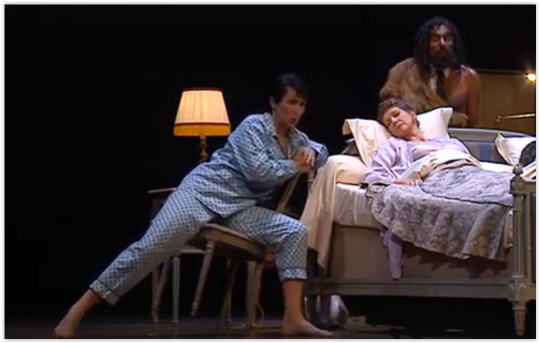
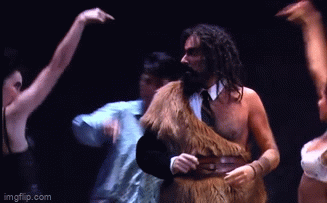
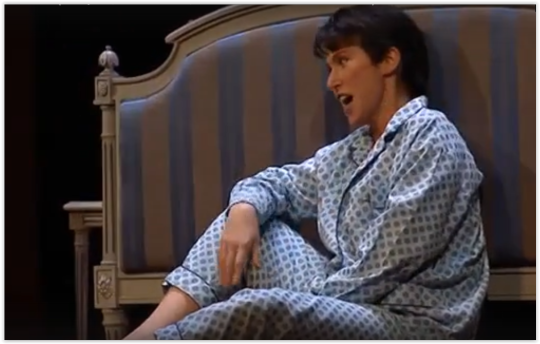



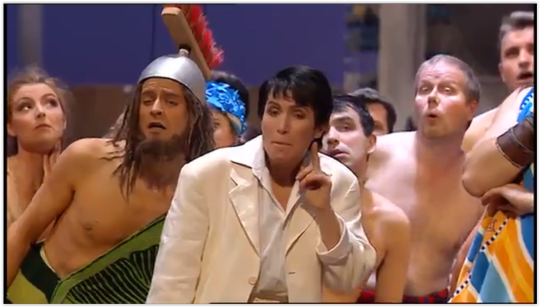
Marie-Ange Todorovitch as Oreste in Offenbach’s La belle Hélène
(Châtelet, 2000)
#Marie-Ange Todorovitch#Oreste#La belle Hélène#Théâtre Musical de Paris - Châtelet#Jaques Offenbach#Henri Meilhac#Ludovic Halévy#mezzos#mezzo-soprano#trouser roles#Trouser Tuesday#opera#opera tag#opera gifs
6 notes
·
View notes
Photo

Tricoche et Cacolet, Pierre Colombier (1938).
2 notes
·
View notes
Text

Ci sono momenti in cui non ci si può impedire di fare delle sciocchezze: questo si chiama entusiasmo.
|| Henri Meilhac
0 notes
Photo

Barbe-bleue is an opéra bouffe by Jacques Offenbach to a French libretto by Henri Meilhac and Ludovic Halévy based on Charles Perrault's 1697 tale.
#jacques offenbach#henri meilhac#ludovic halévy#charles perrault#opera#bluebeard#fairytales#fairytale#fairy tale#fairy tales#barbe bleue#blue-beard#blue beard#barbe-bleue#barbebleue#barba azul#barba-azul#barbaazul#fantasy
0 notes
Text
Die Fledermaus Opera Croatian National Theatre Zagreb
Die Fledermaus Opera Croatian National Theatre Zagreb
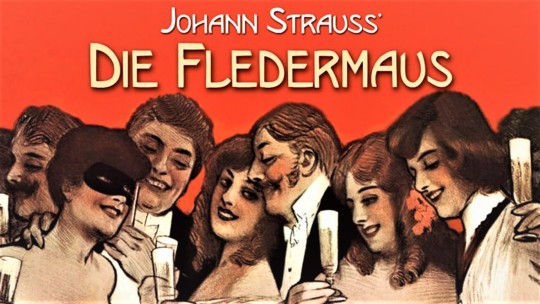
View On WordPress
#Adele Rosalinda’s Chambermaid Soprano Darija Auguštan#Alfredo Rosalinda’s Opera Singer Admirer Tenor Filip Filipović#Ban Jelacic Square#Croatia Joins EU Schengen Countries#DARIJA AUGUŠTAN Soprano#Die Fledermaus Croatian National Theatre Zagreb#Domagoj Dorotić Tenor#Dr. Blind Eisenstein’s Lawyer Tenor Nikša Radovanović#Dr. Falke Eisenstein’s Friend Baritone Ljubomir Puškarić#Essaouira Morocco#Euro#Euro Replaces the Kuna#European Union Schengen Countries#FILIP FILIPOVIĆ Tenor#Frank Prison Warden Baritone Ozren Bilušić#Gabriel von Eisenstein Tenor Domagoj Dorotić#German Librettists Richard Genée and Karl Haffner#German Libretto#Henri Meilhac and Ludovic Halévy Librettists#Ida Adele’s Sister Soprano Josipa Bilić#Josipa Bilić Soprano#Krešimir Dolenčić Director#Lana Kos Soprano#Ljubomir Puškarić Baritone#Luka Vukšić Choirmaster and Conductor#Maghrebi cuisine#Moroccan Tagine#New Year’s Celebrations 2023#New Year’s Eve 2022#Nikša Radovanović Tenor
1 note
·
View note
Photo
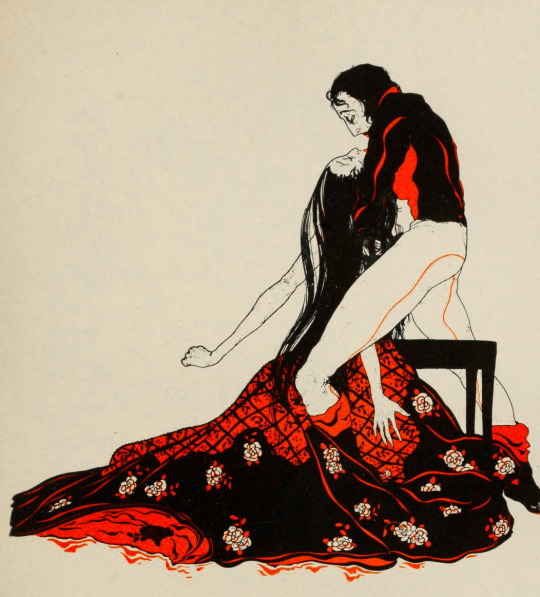
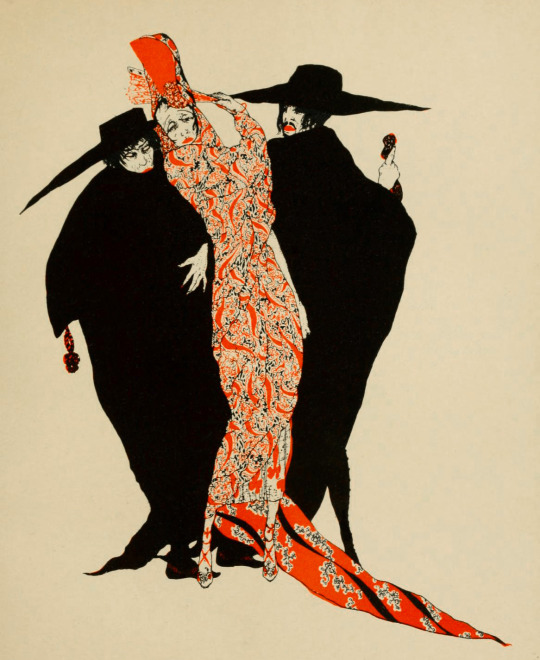
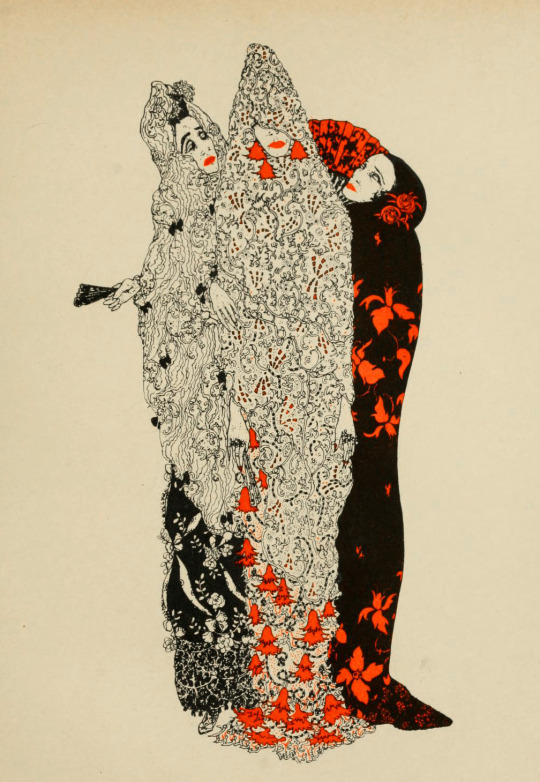
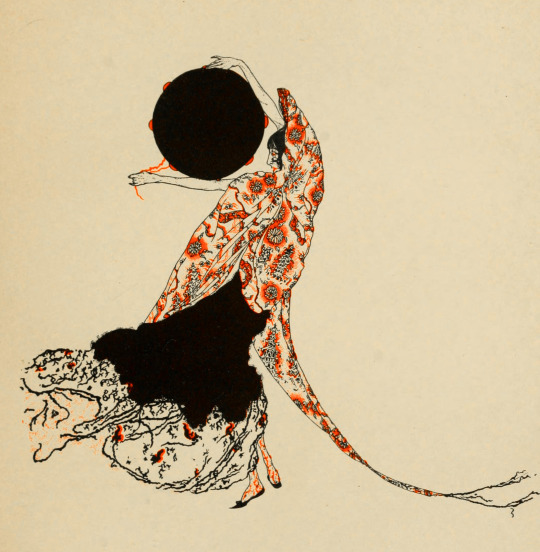


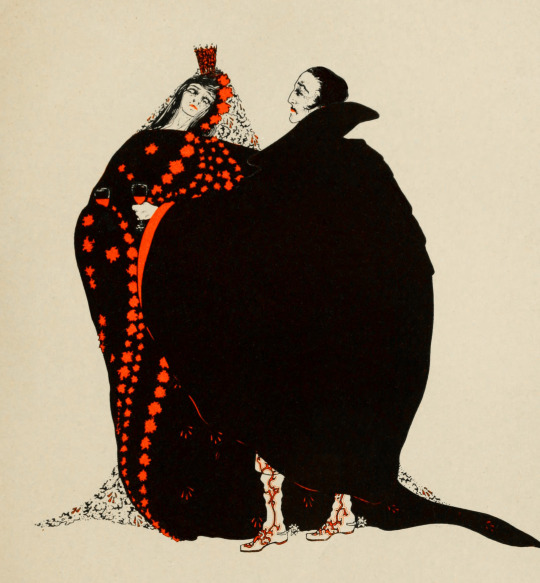
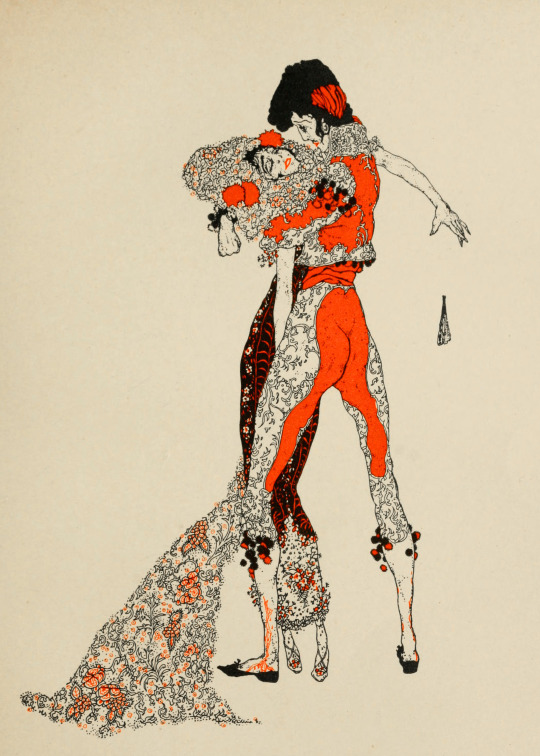
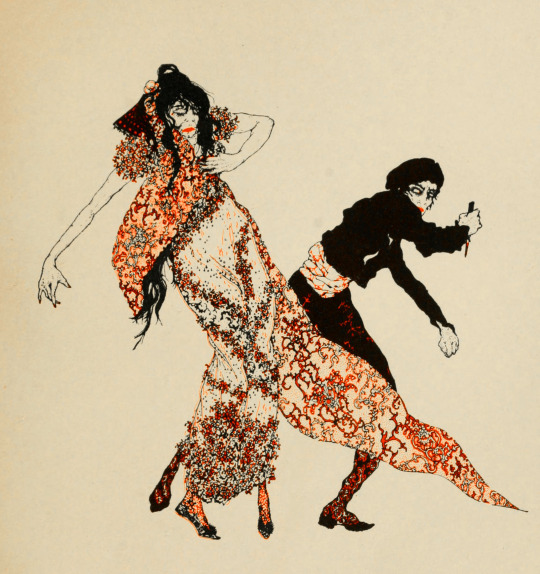

Alastair (Baron Hans Henning Voigt) (1887-1969), ''Carmen'' by Prosper Mérimée, 1920 Source “Carmen is a short story by Prosper Mérimée written in 1845 and published in 1847, from which was taken the opera of the same name, music by Georges Bizet, libretto by Henri Meilhac and Ludovic Halévy (1875).
Carmen deals with the subject of freedom, obsessive love and murderous jealousy. The short story mainly features the characters of Carmen and Don José, whose passionate love for the beautiful bohemian is one-sided, resulting in the murder of Carmen by Don José.” (Source)
#alastair#baron hans henning voigt#hans-henning von voigt#german artists#carmen#prosper mérimée#vintage art#vintage illustration
2K notes
·
View notes
Text
I Say Nothing That Frightens Me, Part One
Pairing: Loki x fem! Reader

Summary: As a young Asgardian, you have grown to be friends and secretly pine for the younger Prince Loki. After his fury has sent him off to put himself in danger, his mother sends you on a quest to find him and bring him home. Your quest makes you cross paths with a mysterious group that calls themselves the TVA. There, your mischievous prince can be found. But it comes with a heartbreaking revelation. He loves another.
Warnings: angst a the end, mentions of Sylvie as a romantic love interest. This will be angsty (but have an eventual happy ending, so stay tuned!). Unrequited love and pining! Loki definitely isn't gonna return Reader's feelings!! hahahaha...unless...oop. ;)
Word Count: >3K
A03//My Ko-Fi//My Etsy Shop//Masterlist//Wattpad
A/N: Ah- the first fic I ever wrote for the big man himself- Loki! I realized I accidentally inspired this from Bizet's opera Carmen, minus the Punish The Woman ending and the cheating and sexism and antisemitism that can be prominent in the opera's plot, hence the title. I wrote it all the way in 2022 and realized I forgot to post it on Tumblr. For a while, it's been this one part because writer's block hit me early last year. I hope y'all like it and give it enough comments and kudos and responses so I can motivate myself to finish it. Send me good vibes to begin on part two! Enjoy!
Taglist: @jennyggggrrr @five-miles-over @fictive-sl0th @ladycamillewrites @villainousshakespeare @holdmytesseract @eleniblue @twhxhck @lokisgoodgirl @lovelysizzlingbluebird @raqnarokr @holymultiplefandomsbatman @michelleleewise @villainousshakespeare @lovelysizzlingbluebird
I say that nothing frightens me, I say alas that I answer for myself, But no matter how brave I am, At the back of the yard, I’m dying of terror Alone, in this wild place Alone, I’m afraid, But I’m wrong to be afraid, You will give me courage, You will protect me, Lord. (English Translation) - Henri Meilhac, from Bizet's opera, Carmen.
It had been a week and there was no sign of him. No word. Nothing. His father couldn’t care less. He kept on ruling Asguard as if everything was normal. As if the only disturbance was a teapot being knocked over in the kitchen. Something simple and easily fixed and none of his business.
That was not the case for his brother or his mother.
Or most especially for you.
Thor had already gone. And there was no exact contact but whispers. People were dying. There was some grand scheme. Something about even the Tesseract and the Infinity Stones. About Midgard and then the Universe being taken over and at the center of it was your close friend and companion, the missing prince.
You sat alone that morning in the garden, watching the fountain burble. Feeling the bit of breeze and the chirp of birds. It all seemed so beautiful and peaceful. You didn’t know if it was to comfort you or if it was mocking you for your inner turbulence. If only you weren’t so worried so you could enjoy it. You were so lost in thought that a sweet, low voice pulled you out of your head.
“How long have you been here?”
Jumping, you turned and stood up, dipping into a curtsy.
“A while, your highness!” you answered.
Looking up, Queen Frigga smiled. And you smiled back.
“It’s your usual spot, I know. Every other child was training with weapons and swords, but you would run here, crying…”
“If you recall, I kept losing. And I was terrified of getting stabbed.”
“And after you had your cry you came back, and kept on…” she finished, she took a hand to smooth the top of your head lovingly.
Your muscles ached on cue from the memory. Yes, you lost often training on how to fight. Seeing the other warriors glide their swords with ease and grow up to be the pride of the kingdom. You preferred regular studies with reading and culture, history and knowledge, and science. Practice battles often had you thrown to the ground in defeat. But at least when it came to a fight, you returned.
“I had to finish it, that was school after all. It’s how I grew up…” you recalled.
She took a hand to dip into the cool water, tracing a pattern followed by the fish inside.
“You’re worried about…” she started.
“Loki, yes. Is he behind this invasion?” you questioned.
“I don’t doubt it. Loki’s been too angry, too jealous, and without a good outlet. All of his life he kept it inside of himself and now that it’s released, it’s piled up from the years of silence. He’s letting it all out at once…” she said.
“He’s…he’s going to get hurt…” you observed worriedly. Mentioning him in this place made it sadder.
You recalled the day years ago. You ran into the garden at this fountain and accidentally happened upon the dark-haired prince reading. You profusely apologized, saying that you were sneaking out of training. And Loki said that he could help you. Then you asked what he was reading. And such began this friendship between the two of you. He gave you tricks about how to fight and confessed that he enjoyed theatre. You told him what your favorite foods at the feast were.
The memories of you too exchanging books and chatting about them between your classes did not stop in your adulthood. They made you happy, and lately even happier. Thoughts of him switched to private, intimate fantasies as you were alone in your room at night.
Now that he was gone, all that was left was a bittersweet tinge in the air.
“He doesn’t hurt himself when you’re around him…” Frigga commented.
“Excuse me?”
“You’re his friend…so save him. Take him off the ledge, find him…”
“But..but I thought Thor would find him!” you argued, standing up. Remembering your manners, you returned to sitting. This could be seen as an insult to the queen, but her arm dismissed the gesture.
She was different from her husband.
“He won’t listen to Thor. Loki’s always been jealous of him, there will be too much of a fight, too much scuffling. And me, I’m his mother but you…you’re his friend. I’ve seen it. He’s too jealous of Thor. He’s mad at his father, mad at me but……you’re different. You might be able to help him. Talk him out of it…” she instructed.
She put a hand on your shoulder, leaning forward, her eyes big and a little watery.
“Y/N, I charge you, as a queen…as a mother…find Loki, find my son…and bring him back…”
You touched the hand and looked up at her.
“If my queen commands, I will” you replied dutifully.
Although a secret part of you was relieved, thrilled. Not just for an adventure. But to find him.
The queen prepared you for your quest well. There was a special sword and a dagger just in case. You couldn’t use magic yourself, but you knew that you had some strength, and being Asgardian, whatever diseases you encountered would not bother you. As you gathered, with some slight armor over your clothes and bags with an extra set of clothes and rations that would satiate you until you found something more, she did something surprising.
On the hour of your departure, the queen gifted you with a beautiful sword- the hilt was bejeweled but all sides of it were still sharp to cut a foe to ribbons. You placed it in a sheath in a belt tied tight around your waist. She gathered your face in her hands and kissed her forehead.
“Thank you…”
“To tell you frankly, I wanted to…wanted to go…go see him…” you confessed.
She blinked and then smiled. No doubt she could tell you felt warmer mentioning that.
“Really?”
“I miss Loki…I miss him more than anything…” you confessed.
She smiled. “I miss him too.”
From under her long sleeve, she gave you a necklace. Nothing but a small string with a glowing blue crystal on it.
“This will take you anywhere on Midgard. But ask for Thor. If you find Thor, you might find him. Ask if there’s any trouble…that is his specialty," Frigga said.
“I promise…I will be back here with him alive and unharmed!" you vowed.
Clutching the necklace, you touched each other’s hands as a last goodbye.
The necklace glowed.
“Take me to Midgard, please," you guided it.
There was a flash of light. You felt a little heavy for a second. It was as if you were falling, but very still. When the light vanished, you saw that you had landed on a field. The wind blew through the grass as it bowed in return. A big red farmhouse stood quietly. An old man in his rocking chair stood up and squinted at you in surprise, hands on his hips.
Midgard was a large place. It was time to start looking.
─── ・ 。゚☆: .☽ . :☆゚. ───
“He took the Tesseract and vanished” Thor explained.
“He did WHAT?” you shouted.
You could hardly believe the words coming through your ears. All those weeks. Searcing everything. The country took forever to get through. Eating grits, checking the news, and finding ways to get to New York City, the most likely place he would attack…and he had vanished.
“But I…I…where could he have gone?” you asked.
Thor shrugged “If I knew, I would have told you, Y/N…”
You wanted to kick something, to punch a wall. But you just leaned over the desk, your hands flat on it, and sighed deeply.
For a day, you let yourself sulk in the guest room. All of that traveling had wiped you out. You were so done. There were blisters on your feet and you could feel the grime from your smell. You spent your day bathing, wondering what on earth you could do now.
New York City was large, still reeling from its recent attack. But all in all, people seemed fine. Not too many casualties. Not zero, but not eighty. Wandering around the city, you wore a large hoodie and pants to cover your Asgardian traveling clothes. There were so many people, sights, and smells, it was dizzying.
Stomach gurgling, you wandered around. Midguardian food did not completely satiate you the way food back home did, but it was better than nothing. And it was a while since you ate, anyway.
Stopping inside, the doorbell rang. You ordered your food, chewing absent-mindedly on the crackers served right before. The wrappers crackled as you tossed them over your shoulder.
It sounded like a song back home. A song they did for dances. Once you go to a party together. Loki disliked social gatherings and preferred to hide away. You managed to talk him into coming down. Talking to one person. Trying the wine. Dancing. Saving one dance for you. He found he liked it. And he was enjoying himself, getting into little fights, laughing, flirting…
The flirting. There was a pretty red-haired boy, a woman with blonde hair, and even another person he kept flirting with that night. It must have been another heir to the throne trying to set a match that night. Even though in hindsight those matches never resulted in a betrothal, the images in your head made you want to vomit. Seeing him made you…it made your stomach turn. You tried to go to sleep that night, but your brain kept racing. Reviewing everything. It meant nothing, right? That words-he was being friendly!? Those phrases weren’t in any way romantic…right? Besides, he was just your friend! Nothing more…
. Ordering their food and drink for the first time for something new. Anything to get your brain off of your search for the misbehaving prince and your past. But it haunted you for a week. You barely spoke with him and buried yourself in school and training. But every morning, you woke up early with those thoughts, that memory still burned in your brain.
“Hey, watch it, dumbass!” someone yelled. It brought you out with a jump.
Getting out, you didn’t notice a person. Slamming into them, they fell right on the floor in their nice suit, their tray of food flipping in the air.
“My lunch! How could you?” he screamed.
“I’m so sorry!" you apologized. "I can pay you!"
"Forget it! Leave me alone!" he fumed.
You turn around to focus back on your food. But your ears could still hear his nasal, tenor voice.
“Look at that mess!” he complained from behind you. “She might as well be another damn Loki…”
Your sandwich froze in midair and you set it down in shock. Your stomach twisted in knots. The words were still forming in your brain. What…no…surely, they can’t mean…
But as you kept your ears peeled back, it occurred to you…they were. They meant it. They were talking…talking about him-him! You finished your food quickly, quietly. Then you got up and followed them through.
They went to an alleyway. Nothing but trash cans and tall brick walls. Children in the distance laughed as they played and cars honked their horns in frustration in the streets a few feet away. Unaware
All you had to do was create a distraction. Digging into your pockets, you pulled out a tiny ball. A favorite of the younger prince when you were children. Briefly, you smiled at the toy. In your adolescence, both of you would try throwing them in hallways to see which maidservant it would spook. It was harmless and would make them jump and squeal and you both would guffaw with laughter.
Looking over, you timed it carefully. The agents in their suits pressed buttons on a device and a portal opened in the brick wall. It was the size of a New York bagel when you tossed the ball- it hit the wall and exploded in a flurry of pink fireworks. The agents turned their heads, jumping when you ran fastly as you could, and jumped into the portal.
You would see him. Him! Him! And soon! At last- you could have cried as blues and yellows flashed through your eyes. You were falling through universes. And perhaps, your heart would be at peace, and you would tell this wayward prince the truth. How you felt. How your body ached for the brush of his fingers against your hand. How you worried for his safety. Despite his many flaws, if he was a poisonous well, you would still drink it. You would find Loki, bring him home, and tell him that you loved him more than life itself.
─── ・ 。゚☆: .☽ . :☆゚. ───
When the bright colors faded, all that was were tans. Earth tones. Browns, greys, tans, and whites but all dirtied and plain. This was far from the magnificent palace and beautiful landscape you secretly hoped for. It looked like an average Midguardian office. Except the surreal posters. But at least it seemed to be benign. There were no weaponed guards. As you walked forward, you saw that desks were pushed aside, mugs with coffee stains long since used and stinking from not being washed, and in the distance, there was old music playing and a ticking grandfather clock.
You stepped forward shyly. Just because it looked harmless didn’t mean there was a trap lurking somewhere.
“Well, I’ll be damned, Asgard fashion!” a voice from behind you cried.
Twirling around, you got out your sword. So far, you were lucky to not use it. But that time was now over. You pointed it right into the face of a man in a suit with grey hair and a mustache. He held up his hands in peace and you released them.
His mouth opened into a smile as he glanced over you, eyes trailing down from your hairstyle to your boots.
“Wait, is that…that can’t be! I think I recognize you! Are you Y/F/N??” he asked.
He walked up to you slowly as if you were a predator released from a zoo.
“I am she. Sir, do you know of Loki Laufreyson, Prince of Asguard and God of Mischief? I’m looking for him…” you asked desperately.
The man nodded.
“Like the back of my hand. He’s trying to disband the TVA right now…”
You put your sword back in your hilt.
“I don’t care about the TVA, I care about him…I need to…I need to make sure he’s okay. I need to take him back home, back somewhere safe! I’ve been on this journey forever all for him! I need him! I mean…I need him to go back to his mother!” you explained.
He stuffed his hands in his pockets. You caught your breath waiting for his answer. But he said something else.
“Oh, Y/N, you poor thing….” he sighed.
“Oh gods, is he dead?” you asked.
“Probably not…or not yet…but…”
“But what…”
“I didn’t know he had…the clips showed you both together, but there was no wedding…”
“Clips? What do you mean? I don’t know what you speak of…but that doesn’t matter- where is Loki? Don’t play games! I beg of you- take me to where he is!” you cried, ready to grab the man by his collar.
His eyes went soft. You felt suddenly vulnerable.
“Do you love him?” he asked.
Bullets striking your chest would have shocked you less. An electric rush ran through you. You found yourself looking away and feeling suddenly warmer than what was comfortable.
“Love…define love…” you said.
“I can tell, you have…feelings. Not platonic, romantic ones. You have the hots, a crush for this god. That is how we are defining love right now! Do you love him?”
There was silence. The song stopped playing on the speaker and skipped to a trio of women singing about birds.
You felt as if this was a monster to fight. But not a literal one. And you were taught to be brave no matter what.
“I…I do! Now tell me where he is…” you answered plainly.
“I…I know where he is. Call it the end of the Universe and I know a way to get there but…Y/N…I need to prepare you…” he said with a deep sigh.
He walked up and put a heavy hand on your shoulder. His lips curled as if getting ready to spit out a poison he did not want to inflict on you.
“What is your name, sir?” you asked.
“Call me Mobius,” he answered.
You shook your head.
“What could possibly upset me, Mobius? He’s alive and not injured, I have reason to rejoice why would you say that? Loki is alive and once I find him, I will tell him how I feel and-”
“Y/N, he’s there with a woman he’s fallen in love with…”
It hits you like a rock. No. No no no no-no. You began shaking. The world went dizzy except for him. You began to sit down to ground yourself.
“Wha…he’s in love with someone else?”
Mobius nodded.
In spite of your warrior education, you sat down on a chair and burst into exhausted, heartbroken sobs as Mobius watched. Hand still on your shoulder empathetically.
“That’s not even the strangest part about it…” Mobius added on.
#loki fanfiction#loki x reader#loki angst#mcu fanfiction#marvel fanfiction#loki x fem! reader#loki x you#loki x y/n#loki imagine#carrie writes#angst with a happy ending#loki x fem! y/n#loki x reader fanficiton#loki tv show#loki laufeyson#loki laufesyon x reader#loki odinson#loki odison x reader#loki friggason#how many names does the dude have?#tom hiddleston#angst#unrequited love#or is it#angst fanfic#angst fic#angst writing
77 notes
·
View notes
Text

"Ci sono momenti in cui non ci si può impedire di fare delle sciocchezze: questo si chiama entusiasmo."
-Henri Meilhac-
BUONGIORNO ♣️
44 notes
·
View notes
Text

Ci sono momenti in cui non ci si può impedire di fare delle sciocchezze:questo si chiama entusiasmo.
Henri Meilhac
48 notes
·
View notes

